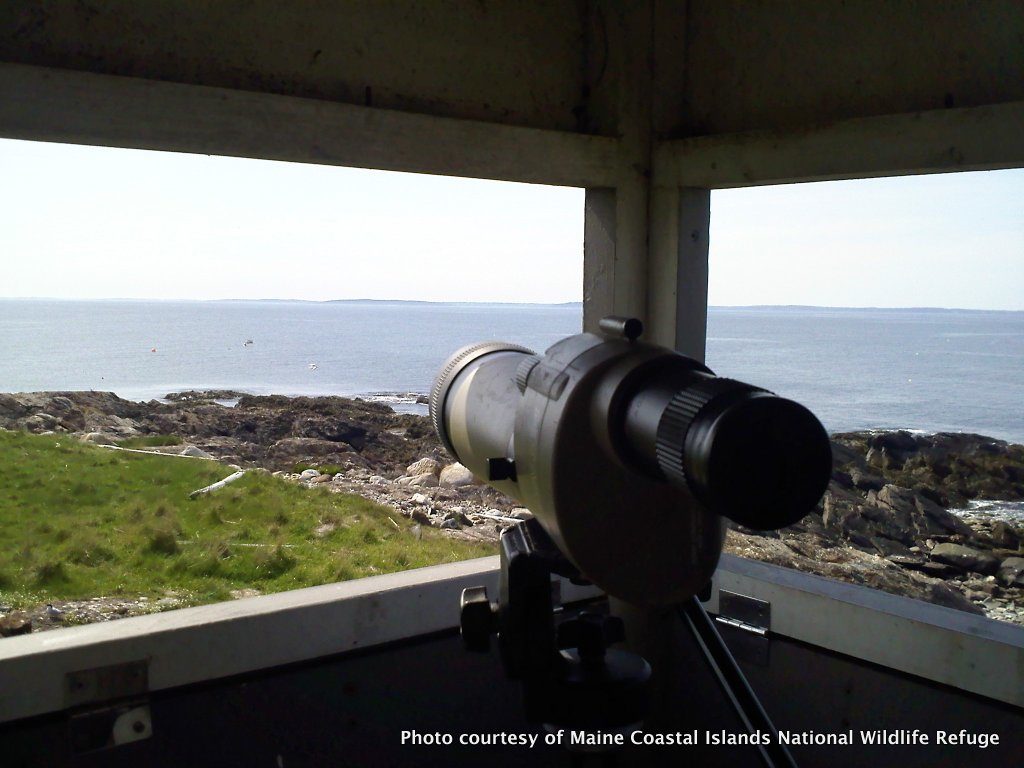Good news! The first tern eggs of the season have arrived on Metinic Island. Soon all of the eggs will be laid and the incubation period will start. Terns usually lay from 2-4 eggs one at a time until they are all laid. Because the terns are colonial breeders it is advantageous to them to all lay their eggs around the same time. This reduces the chances of predation through the protection of sheer numbers. We are excited to see the first eggs because this means the busy season is on its way. This past week we put together the three blinds on the island and have begun to record sightings of banded birds.
We also found our first confirmed nest on Ship Island on Monday evening. The nest contained one egg at the time, but by Tuesday morning another egg was laid.
Terns don’t build much of a nest – it’s called a scrape for a reason! Their eggs are also very well camouflaged, so it can be difficult to spot them from up in a blind ten feet in the air. Luckily, we were tipped off when this particular tern chose to stay put when the rest of the colony had taken off as part of a behavior known as dreading. After a few minutes of observation, the tern also stood up and changed position, revealing the egg.
In addition to being our first nest of the season on Ship Island, this nest is exciting for another reason: one of the parents is a banded bird. We’ve seen several banded terns along the beach, but we haven’t been able to read the identifying numbers on the band. Now that we know where this particular bird is nesting, we’ve placed a stake that can serve as a perch near the nest. With any luck, the banded tern will stand there long enough for us to read the numbers off the band.
We’ll be on the lookout for a third egg soon, as the usual clutch size for a Common Tern is 2-3 eggs. These eggs will be incubated for a little over three weeks before chicks start to hatch.
Last week we also took a tour of the colony to look for more nests, and we were in luck: we found three more. In a few weeks, we might have as many as 150, but four is pretty exciting right now!


